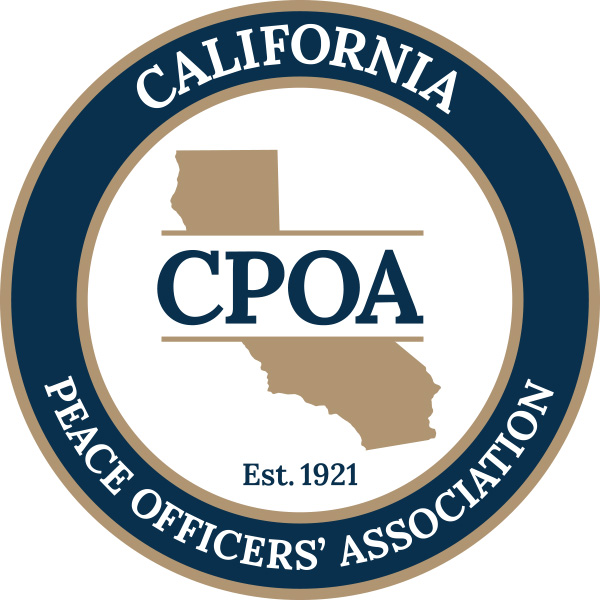Courtesy of James R. Touchstone, Esq.
In the August 2020 case of Facebook, Inc. v. Superior Court (Stephan),[1] the California Supreme Court directed trial courts to explicitly consider and balance seven factors in ruling on a motion to quash a subpoena duces tecum directed to a third party.
Background
In May 2018 in Facebook v. Superior Court (Hunter),[2] the California Supreme Court had addressed issues concerning the propriety of criminal defense subpoenas served on social media providers, including Facebook, Inc., seeking restricted posts and private messages of two of their users. In Facebook (Hunter),[3] the Court held, in part, that to the extent a subpoena duces tecum seeks a communication that had been configured as and remained public, Facebook could not assert the federal Stored Communications Act (18 U.S.C. section 2701 et seq.; “SCA”) as a shield to block enforcement of the subpoena.[4]
While that case was pending, the Supreme Court granted review in the instant case, a pretrial criminal discovery matter. Defendant Lance Touchstone[5] was charged with shooting and attempting to murder Jeffrey Renteria. A preliminary hearing was held in which Defendant’s presentation of the facts conveyed that Defendant had acted in self-defense in shooting Renteria.
Five months after the preliminary hearing, Defendant sought, before a different judge, a subpoena duces tecum for all of Renteria’s Facebook communications (including restricted posts and private messages) before and after the shooting, and requested that Facebook preserve all such communications. Defendant contended that he needed all electronic communications by Renteria in order to prepare his defense. Specifically, Defendant contended that he had a viable claim of self-defense against Renteria, and that he required the communications to investigate and present that affirmative defense. Secondarily, or alternatively, Defendant sought to prepare to impeach the character of the anticipated main prosecution witness against him—the victim, Renteria—if Renteria was to be called by the prosecution at trial. Defendant supported his demands for Renteria’s Facebook communications by offering a sealed declaration describing and quoting certain public Facebook posts made by Renteria after the shooting that, Defendant asserted, revealed Renteria’s violent general thoughts.
Defendant also asserted that, to the extent the SCA allowed Facebook to block his subpoena, the SCA must be found to violate his federal Fifth Amendment due process rights, along with his Sixth Amendment rights of confrontation, cross-examination, and counsel—and thus the SCA was unconstitutional as applied to him.
The trial judge ordered Facebook to comply with the subpoena or appear in court to address any objection to it and to preserve the account and related stored communications. Facebook preserved Renteria’s account as directed, and then moved to quash the subpoena. Defendant argued in his brief opposing the motion to quash that he had established the requisite “plausible justification” (see, e.g., City of Alhambra v. Superior Court (2nd Dist. 1988) 205 Cal.App.3d 1118, 1134) for acquiring any restricted posts and private messages, and that the motion to quash should be denied. In support, Defendant invited the trial judge to “review … the specific plausible justifications establishing [Defendant’s] right to compel the disclosure of documents” set out in a second and also sealed[6] declaration in opposition to the motion to quash filed simultaneously with the opposition brief.
The trial court found that Defendant established good cause to acquire the communications requested from Facebook and denied Facebook’s motion to quash.
Facebook sought a peremptory writ of mandate directing the trial court to vacate its order denying the motion to quash the subpoena and to enter a new order granting the motion. The Fourth District Court of Appeal observed that Facebook (Hunter) was then pending before the Supreme Court. The Court of Appeal rejected Defendant’s claims and denied him pretrial discovery. The Fourth District directed the trial court to vacate its order denying Facebook’s motion to quash, and to enter a new order granting the motion.
Discussion
The Supreme Court of California granted review to address the propriety of the criminal defense subpoena served on Facebook. In supplemental briefing, Defendant maintained that the subpoena duces tecum upon Facebook was supported by good cause, and that the trial court properly denied Facebook’s motion to quash. Facebook and the District Attorney contended that Defendant failed to state sufficient justification for acquiring the sought communications, and that the subpoena was not supported by good cause.
The Supreme Court explained that under Penal Code section 1326(a), various officials or persons—including defense counsel, and any judge of the superior court—may issue a criminal subpoena duces tecum. Unlike civil subpoenas, there is no statutory requirement of a “‘good cause’” affidavit before a criminal subpoena may be issued. (Pitchess v. Superior Court (1974) 11 Cal.3d 531, 535; City of Woodlake v. Tulare County Grand Jury (5th Dist. 2011) 197 Cal.App.4th 1293, 1301 [no requirement of a “good cause affidavit” “[i]n criminal matters”].)
The Court explained that although no substantial showing was required to issue a criminal subpoena duces tecum, in order to defend such a subpoena against a motion to quash, the subpoenaing party must at that point establish good cause to acquire the subpoenaed records. (See Pitchess, supra, 11 Cal.3d at p. 537. [the defendant must show “some cause for discovery other than ‘a mere desire for the benefit of all information.’”].)
The Supreme Court listed seven factors that should be considered by a trial court in considering whether good cause has been shown regarding the enforcement of a criminal subpoena duces tecum issued to a third party that has been challenged by a motion to quash. This seven-factor test was based on a list discussed in the Alhambra opinion[7] and on text from a leading criminal discovery treatise.[8] The Court set forth these seven “Alhambra factors” as follows:
(1) Has the defendant carried his burden of showing a “‘plausible justification’” for acquiring documents from a third party[9] by presenting specific facts demonstrating that the subpoenaed documents are admissible or might lead to admissible evidence that will reasonably “‘assist [the defendant] in preparing his defense’”?[10] Or does the subpoena amount to an impermissible “‘fishing expedition’”?[11]
(2) Is the sought material adequately described and not overly broad?
(3) Is the material “reasonably available to the … entity from which it is sought (and not readily available to the defendant from other sources)”?[12]
(4) Would production of the requested materials violate a third party’s “confidentiality or privacy rights” or intrude upon “any protected governmental interest”?[13]
(5) Is defendant’s request timely? Or, alternatively, is the request premature?
(6) Would the “time required to produce the requested information … necessitate an unreasonable delay of defendant’s trial”?[14]
(7) Would “production of the records containing the requested information … place an unreasonable burden on the [third party]”?[15]
For the instant case, the Court elaborated on two of the seven factors. First, the Court focused on “plausible justification,” citing Ballard v. Superior Court (1966) 64 Cal.2d 159 and Hill, supra, 10 Cal.3d 812. In Ballard, the Supreme Court’s first decision articulating the plausible justification standard, the Court measured the defendant’s stated justification for acquiring the sought information against the legal claims (in that case, asserted violations of the rights to counsel and to remain silent) pursuant to which the defendant urged the information would be relevant. In Hill, the Court had expressed that each legal claim that a defendant advances to justify acquiring and inspecting sought information must be scrutinized and assessed regarding its validity and strength.
Consistent with the approach undertaken in Ballard and Hill, in assessing the current Defendant’s primary basis for plausible justification to acquire and inspect the sought restricted posts and private messages (to support a claim of self-defense), the Supreme Court explained that an appropriate inquiry would focus on the facts as alleged in the briefings (that Defendant, the District Attorney, and Facebook filed with the Court) and also as reflected in the preliminary hearing transcript in order to assess whether a claim of self-defense was sufficiently viable to warrant that significant intrusion.
In assessing the Defendant’s secondary (and, if the self-defense-claim justification failed, alternative) basis for plausible justification in the present case (to impeach prospective witness Renteria), the Court explained that an appropriate inquiry would consider whether such a significant intrusion was warranted and necessary to facilitate the contemplated impeachment. The Court stated that the analysis should be informed by the circumstance that Defendant had already acquired, not only Renteria’s public posts (which, Defendant asserted, contain substantial relevant information) but also Renteria’s probation reports, which detailed his prior convictions and contained other substantial related impeachment information. The Court added that when, as here, a subpoena seeks restricted social media posts and private messages, in the absence of an apparent relationship between the underlying crime and such communications,[16] a trial court should examine even more closely the proffered showing of plausible justification in support of such a privacy intrusion.
The Supreme Court also elaborated on the Alhambra factor concerning third-party privacy/government interest intrusions. The Court observed that when considering the enforceability of a criminal defense subpoena duces tecum, “[t]he protection of [the subject of a subpoena’s] right to be free from unreasonable search and seizure constitutes a ‘legitimate governmental interest.’” Pacific Lighting, supra, 60 Cal.App.3d 552, 566-567. The Court declared that an appropriate assessment of a social media user’s rights implicated by such a subpoena would take into account the likelihood that the asserted connection between an underlying crime and any sought private communications actually exists.
In Facebook (Hunter), the Supreme Court found that there was significant evidence that the underlying shooting and resulting homicide may have related to, and stemmed from, social media posts; therefore, the nexus, and justification for intruding into a victim’s or witness’s social media posts (public and restricted, and/or private messages), was substantial. Here, the Court questioned whether there was any similar substantial connection between the victim’s social media posts and the alleged attempted murder by Defendant. Accordingly, the Court stated that plausible justification—which must in all cases be “so substantiated as to make the seizure constitutionally reasonable” (Pacific Lighting, supra, 60 Cal.App.3d at p. 567)—must be subject to even closer examination in the absence of an apparent relationship between the alleged crime and the private communications sought for disclosure.
The Supreme Court noted that the trial court judge who conducted the hearing on the motion to quash found good cause for the subpoena duces tecum and denied the motion. The Supreme Court observed, however, that neither the reporter’s transcript of the hearing, nor the resulting minute order, reflected that the trial court expressly considered and balanced the Alhambra factors.[17] The trial court did not expressly mention whether defendant had shown plausible justification for acquiring crime victim Renteria’s restricted posts and private messages, nor consider other Alhambra factors – including the adequacy of the description/overbreadth, availability of the sought material from other sources, privacy/confidentiality and constitutional concerns, timeliness, potential for delay of trial, and asserted undue burden on a producing third party. The Supreme Court stressed that especially at the time when ruling on a motion to squash a subpoena, the judicial officer must assess and balance such factors. Moreover, the Court cautioned trial courts against readily allowing a defendant seeking to enforce such a subpoena to proceed, as was done here, ex parte and under seal.
The Supreme Court concluded that the trial court below abused its discretion when ruling on the motion to quash in failing to apply the seven-factor Alhambra test. With regard to the constitutional and other issues potentially presented by this case, the Supreme Court explained that it was “generally reluctant to address significant substantive legal issues when, due to underlying factual and related problems, it may prove unnecessary to do so.” The Court added that it was especially disinclined to resolve the important constitutional, statutory, and related issues addressed in the briefs when the underlying subpoena might not be enforceable because of the questions concerning whether the subpoena was supported by good cause.
Accordingly, the Supreme Court directed the Court of Appeal to vacate the trial court’s denial of the motion to quash and instructed the trial court to reconsider that motion consistent with the Court’s guidance in this case.
The Supreme Court briefly addressed the issue of whether Facebook was covered by the SCA. Defendant and the District Attorney asserted that Facebook’s business model placed it outside key provisions of the SCA and rendered it subject to an enforceable state subpoena. Defendant and the District Attorney set forth a theory that Facebook’s business model of mining its users’ communications content, analyzing that content, and sharing the resulting information with third parties to facilitate targeted advertising, precluded Facebook from qualifying as an entity subject to the SCA. The Court explained that the SCA covers only two types of entities—(1) those that provide “electronic communication service” (“ECS”) and (2) those that provide “remote computing service” (“RCS”)—and the law bars such entities from divulging to others the contents of their users’ communications. Defendant and the District Attorney asserted that Facebook was neither a provider of ECS nor of RCS under the provisions of the SCA. Facebook suggested that the Supreme Court’s opinion in Facebook (Hunter) supra, 4 Cal.5th 1245 had already determined that Facebook operated as a provider of either ECS or RCS, and hence was covered by the SCA.
After stating that it would not assess the underlying merits of the business model thesis, the Supreme Court explained that, contrary to Facebook’s view, the Court had not determined whether, under the business model theory, Facebook provided either ECS or RCS, or neither, under the SCA.
Judge Cantil-Sakauye, who wrote the Court’s opinion, also wrote a concurring opinion elaborating on the business model theory, deeming it an issue that “deserves additional and focused attention, perhaps on remand in this case or at least in other similar future litigation.” Judge Cuellar wrote a separate concurring opinion stating: “The companies storing ever-expanding troves of data about our lives would surely benefit from greater clarity about the full extent of their responsibility to honor a valid subpoena.”
HOW THIS AFFECTS YOUR AGENCY
Agencies should note the Supreme Court’s emphasis on the seven-factor Alhambra standard as direction for trial courts in considering whether good cause has been shown regarding the enforcement of a criminal subpoena issued to a third party that has been challenged by a motion to quash. Agencies should also observe that due to the underlying subpoena issues, the Court’s opinion did not resolve questions concerning the constitutional claims, the SCA’s reach, and other issues raised. Essentially, the Court noted that those claims were not ripe for consideration at this time. We will continue to monitor case law arising from this developing area of the law and provide Client Alerts as these decisions unfold.
As always, if you wish to discuss this matter in greater detail, please feel free to contact me at (714) 446–1400 or via email at jrt@jones-mayer.com.
Information on www.jones-mayer.com is for general use and is not legal advice. The mailing of this Client Alert Memorandum is not intended to create, and receipt of it does not constitute, an attorney-client-relationship.
[1] 2020 Cal. LEXIS 5354 (Aug. 13, 2020).
[2] 4 Cal.5th 1245 (2018).
[3] See Client Alert Vol. 33, No. 15 for discussion of Facebook v. Superior Court (Hunter).
[4] Id., at pp. 1250, 1262–1274.
[5] Defendant has no relationship to the author.
[6] The Supreme Court later unsealed the declarations for its review after the parties had not objected.
[7] Alhambra, supra, 205 Cal.App.3d 1118, 1132, 1134.
[8] Hoffstadt, California Criminal Discovery (5th ed. 2015) section 13.03, pages 390–391 (“Hoffstadt on Criminal Discovery”).
[9] Kling v. Superior Court of Ventura County (2010) 50 Cal.4th 1068, 1075; Hill v. Superior Court (1974) 10 Cal.3d 812, 817–818 [discovery context]; Joe Z. v. Superior Court (1970) 3 Cal.3d 797, 804 [discovery context]; see also, e.g., Alhambra, supra, 205 Cal.App.3d at pp. 1124, 1128, 1131–1136 [discovery context]; Pacific Lighting Leasing Co. v. Superior Court (1976) 60 Cal.App.3d 552, 566–567 (“Pacific Lighting”).
[10] People v. Superior Court (Barrett) (4th Dist.2000) 80 Cal.App.4th 1305, 1318 (“Barrett”); Alhambra, supra, at p. 1133–1134 [discovery context].
[11] Pitchess, supra, 11 Cal.3d at p. 538; Barrett, supra, 80 Cal.App.4th at p. 1320, fn. 7.
[12] Alhambra, supra, at p. 1134 [discovery context]; see also Hill, supra, 10 Cal.3d 812, 817 [posing whether the defendant “cannot readily obtain the [discovery] information through his own efforts”].
[13] Alhambra, supra, 205 Cal.App.3d at p. 1134 [discovery context].
[14] Id., at p. 1134 & fn. 17 [discovery context].
[15] Id., at p. 1134 [discovery context]; see also Facebook (Hunter), supra, 4 Cal.5th at pp. 1289–1290 [regarding asserted burdens on a social media provider].
[16] The Supreme Court had obtained and took judicial notice of the underlying preliminary hearing transcript and exhibits from the trial court. The Supreme Court found that the testimony and exhibits introduced at the preliminary hearing called into question Defendant’s asserted self-defense justification for obtaining access to Renteria’s restricted posts and private messages and Defendant’s contention that his need for access to such communications was particularly compelling and overcame any competing privacy interests of Renteria. Although the Court acknowledged this was merely preliminary hearing evidence, the Court explained that it “nevertheless constitute[d] relevant material that could properly be considered by a trial court that, having been presented with an assertedly viable claim of self-defense, is required to rule on a motion to quash a subpoena seeking restricted and private social media communications.”
[17] The Supreme Court stated, “…a number of long-established decisions have discussed, quite extensively, several of these factors, including the two that deserve special attention in the present circumstances—plausible justification, and confidentiality or constitutional interests that a person in Renteria’s position might have. In other words, as these and related cases demonstrate, the Alhambra framework is built upon a firm foundation, and the Alhambra decision itself is innovative only in the sense that it collected these principles in a handy list.”


